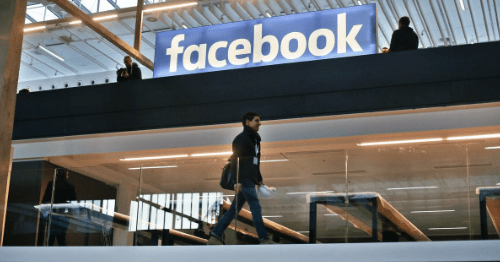Facebook's diversity problem isn't going anywhere any time soon.
The social media juggernaut released their latest diversity report earlier this week only to show that the company has made no ground in hiring black and Hispanic employees. Only the number of women working at the company has made a drastic improvement. CNBC reports that 36 percent of the company is comprised of women, up from 31 percent in 2014.
“You can build something that works, that people want to use, but you can’t actually make all the right decisions if among the builders there’s not enough diversity and perspective,” Facebook's head of diversity Maxine Williams explained to CNBC.
Black and Hispanic employees have increased from two to four percent and four to five percent over four years, respectively. However, black people in technical roles has remained at one percent. Leadership roles occupied by black people have also remained unchanged at two percent. While women are becoming more visible at the company, black women, in particular, are not.
Facebook says that finding qualified candidates is the reason for slow change. Numbers from the National Center for Educational Statistics show that black graduates with a STEM (science, technology, engineering and mathematics) bachelor's degree, a requirement the company lists to qualify for technical roles, was less than nine percent in 2015-2016.
Allison Scott, chief of research at the Kapor Center, told USA Today that diversity efforts in silicon valley are never truly intersectional.
"Women of color, who simultaneously experience two marginalized identities within the tech ecosystem, face unique barriers and obstacles that are not well understood or acknowledged," Scott said. "Without a specific focus on strategies to recruit, hire and retain women of color, progress will remain stalled."
The report isn't entirely full of bad news. Facebook has seen some gains/improvement in sales and business roles for black and Hispanic workers. It should be noted that these positions are not necessarily leadership roles.
Joelle Emerson, founder and CEO of Paradigm, a strategy firm that consults with tech companies on diversity and inclusion, suggests the problem lies in Facebook's attempts at fixing talent pipelines instead of internal issues.
"While these programs have value, they often get more attention and investment than programs aimed at making internal changes. Changes to how companies evaluate talent. How they invest in, train and coach the people they have. How they evaluate performance and make promotion decisions," Emerson said. "Those types of internal changes are often harder. They require a lot of critical self-reflection."
Overall, in the four years of increased attention paid to diversity, black workers increased to four percent from three percent, while Hispanic employees remained the same at five. In the meantime, Facebook will continue their training programs at historically black colleges and Hispanic-serving institutions to fix this problem.
Now, check out these other stories:
Billionaire Elon Musk Pledges To Fund Solutions To Provide Clean Water In Flint, Michigan, Will Work With Lil' Miss Flint
Pusha–T Launches Hip-Hop App That Pays Fans For Rating Music

